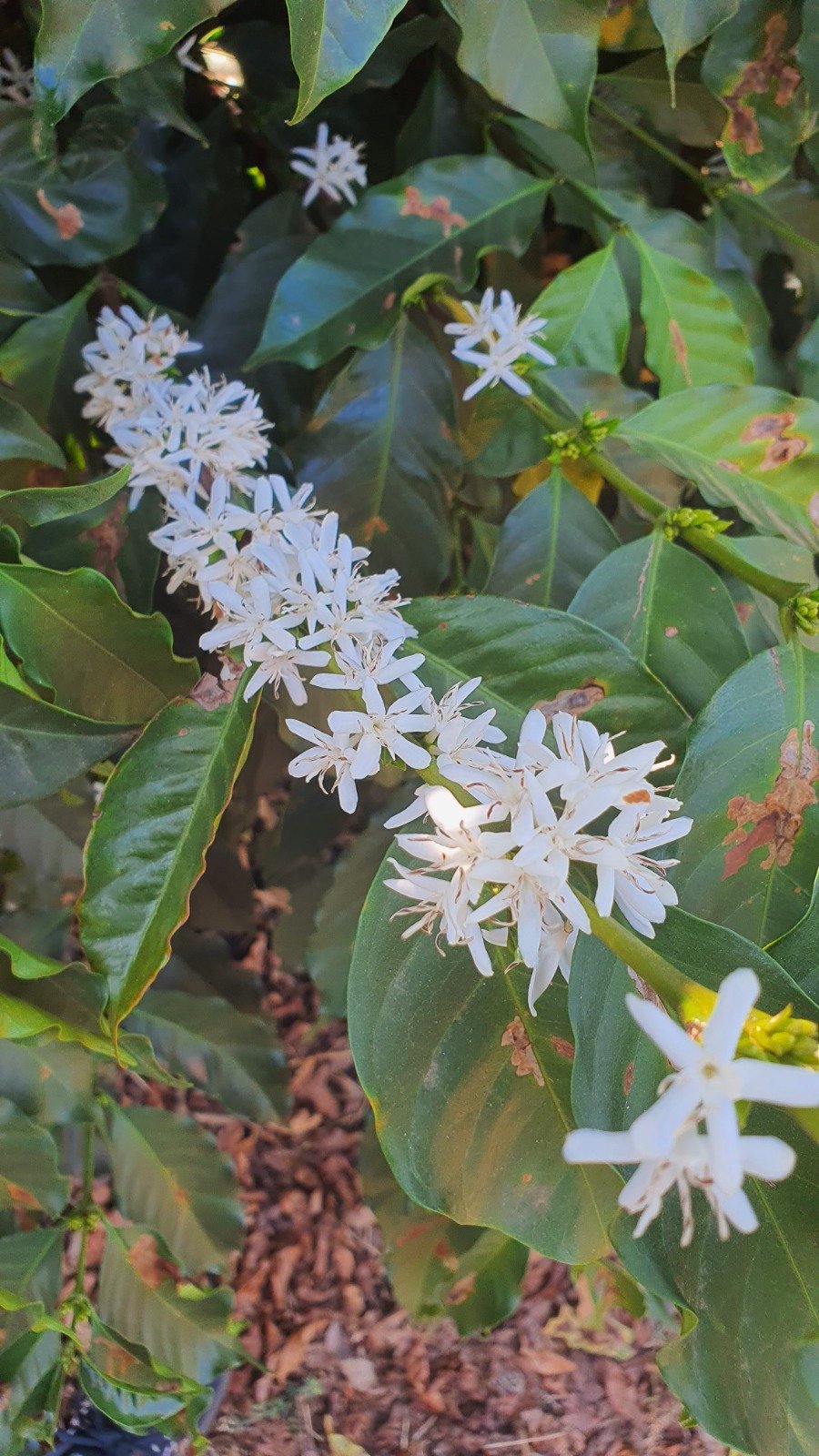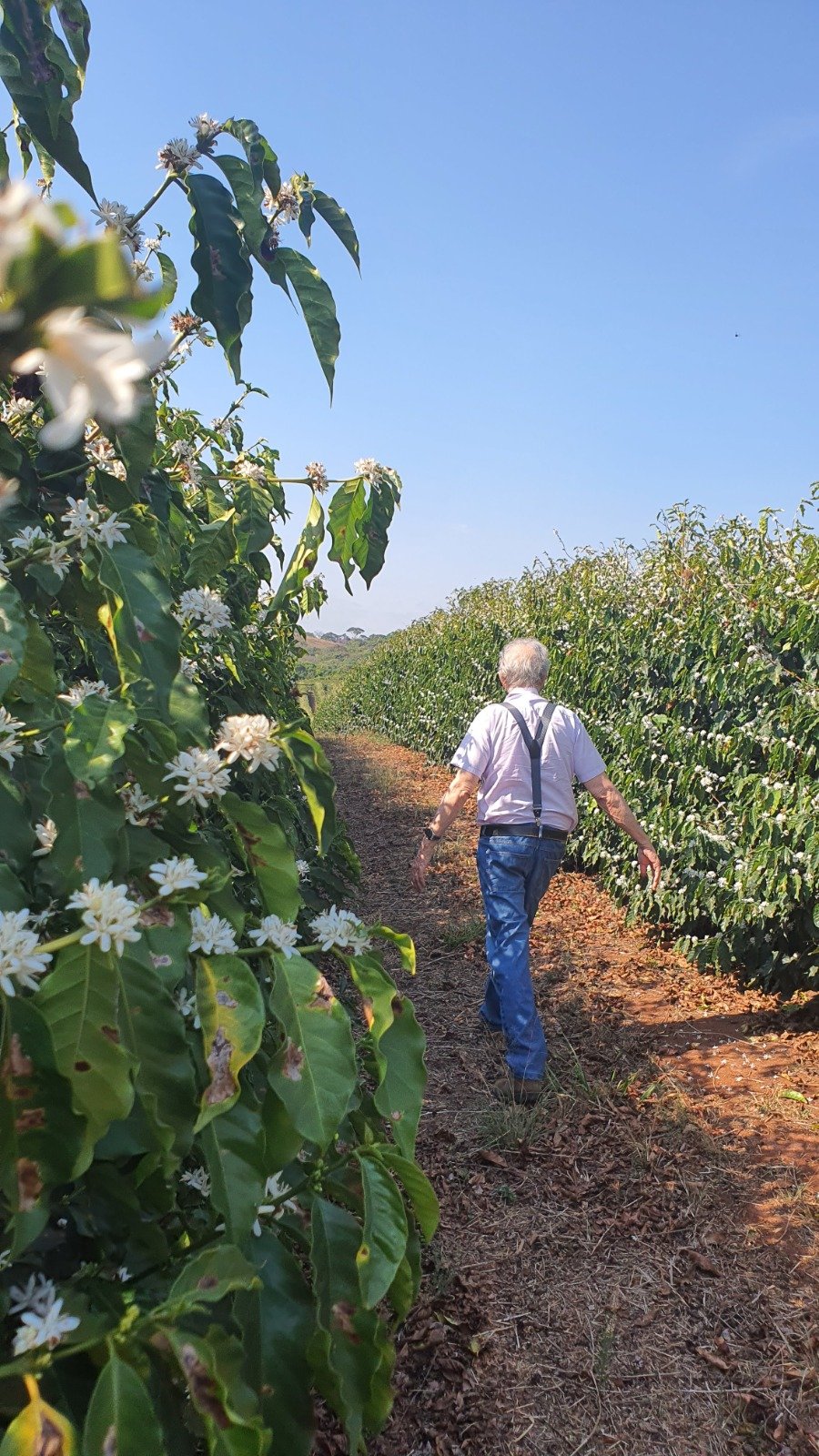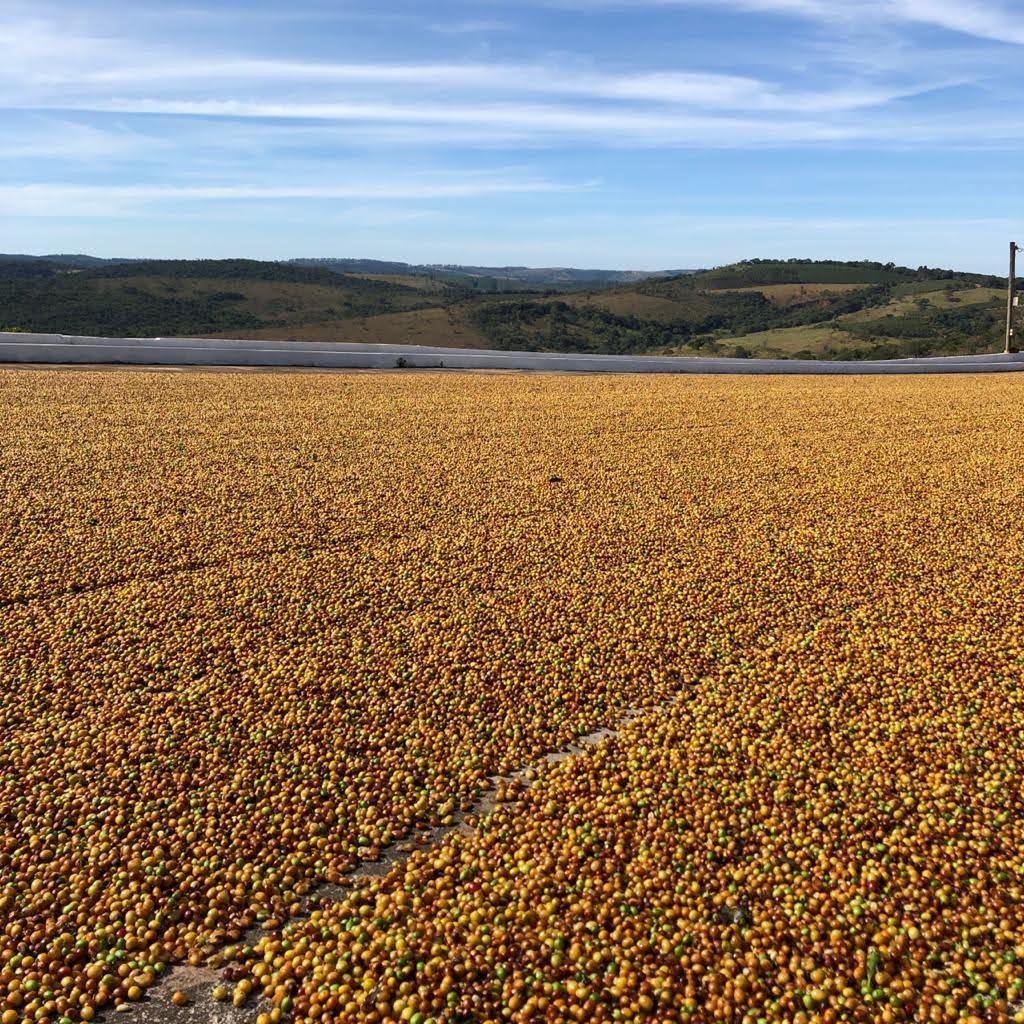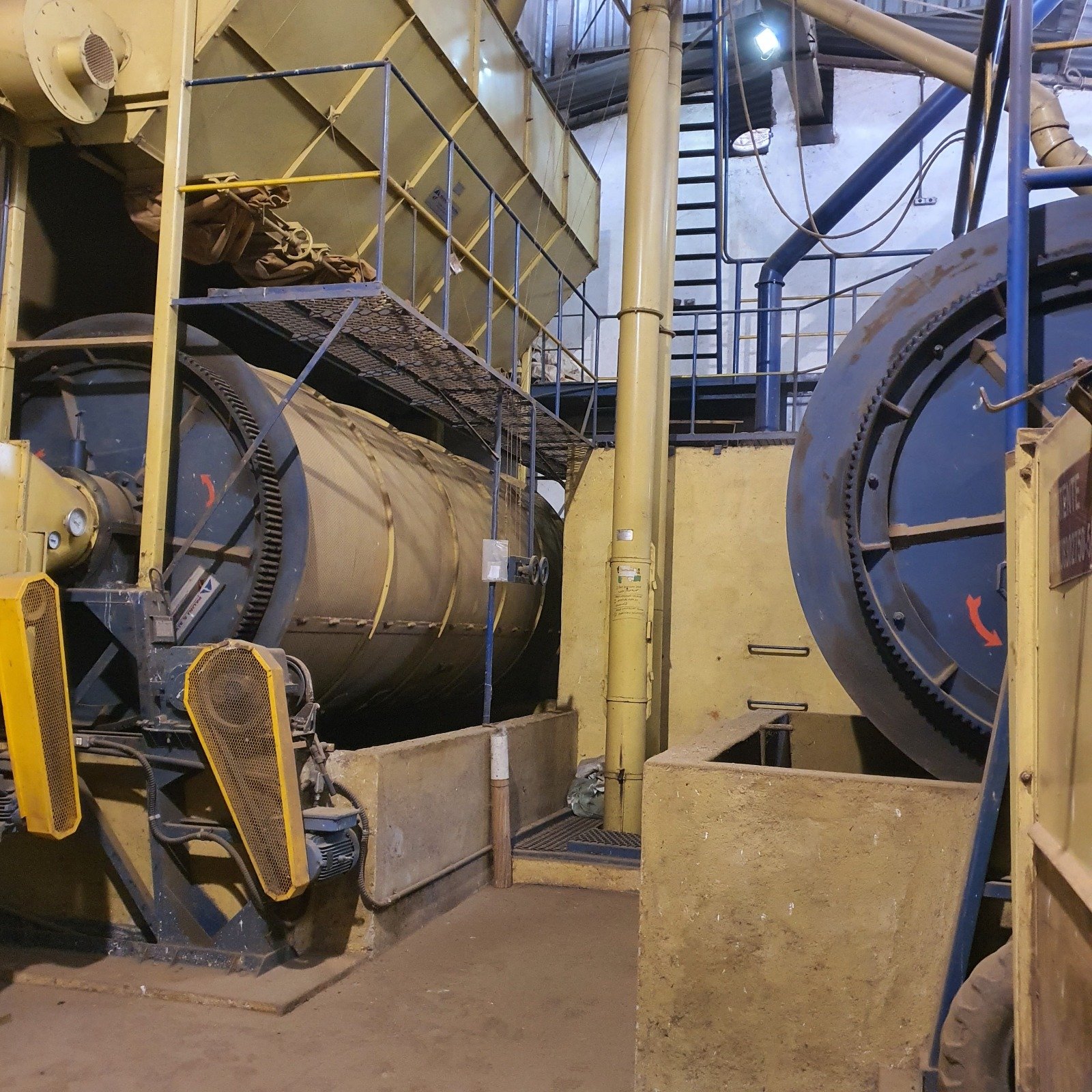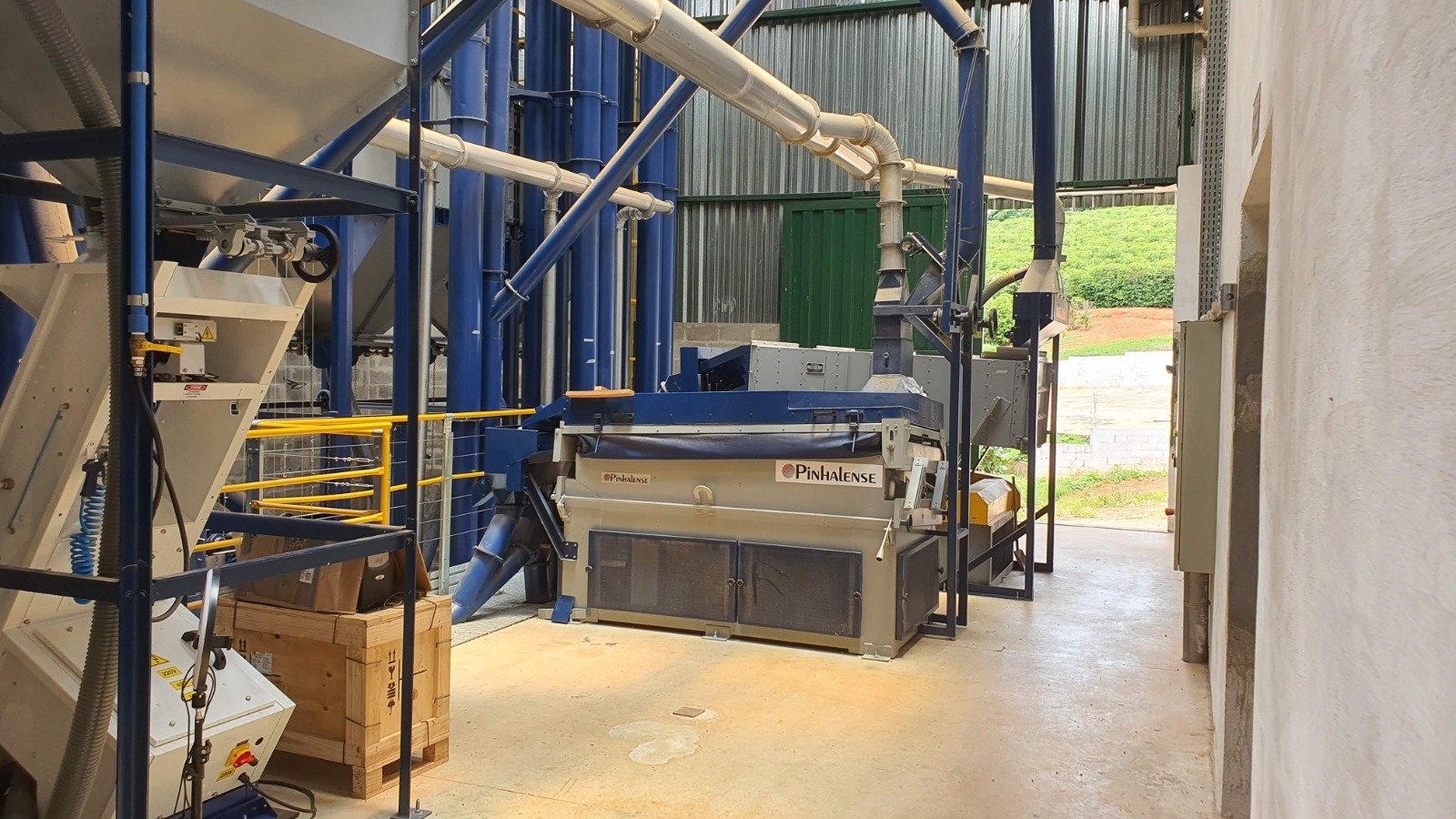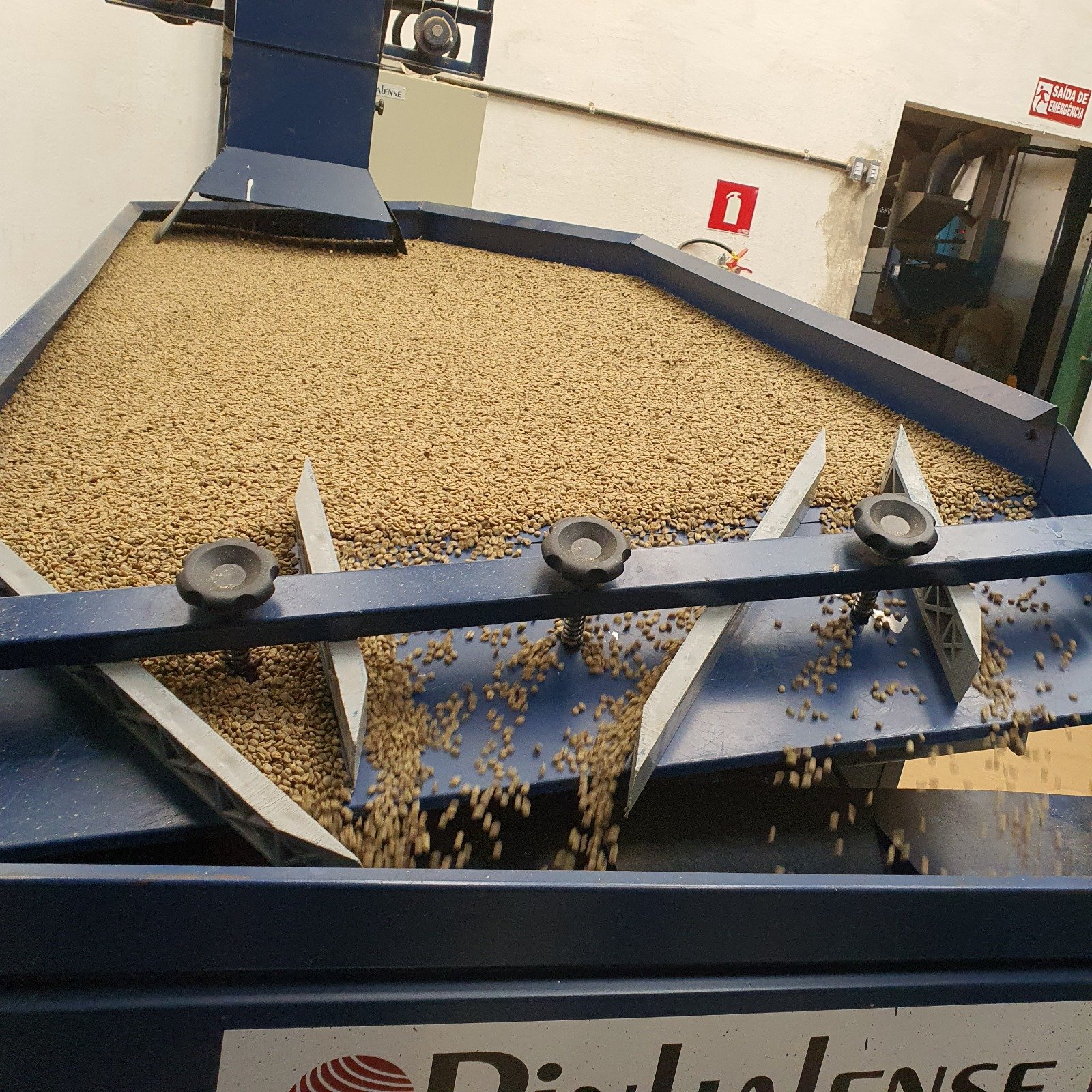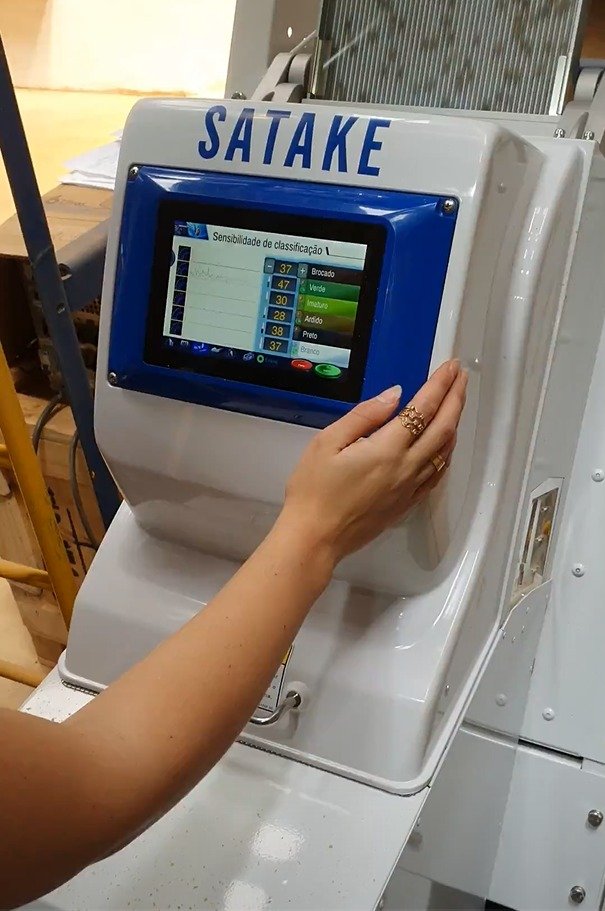Crop to Cup - Where the bean begins
/Crop to Cup -
Where the Bean begins
The journey of coffee from Crop to Cup is a captivating story filled with science and tradition. Among the frequent inquiries we receive, where we get our coffee beans from sparks the most conversation. While we haven’t personally travelled to coffee plantations (yet!), our close-knit collaborations with esteemed coffee farmers across the globe bring the essence of their native soil right to our doorstep. One such cherished partnership is with Marina Pereira of ‘Fazenda Paradiso Café’, a distinguished coffee producer from the heartland of Brazil, a country well known for its rich coffee heritage. As we unravel the tale of our coffee’s voyage, we invite you to discover the unique story of the diligent team at Fazenda Paradiso Cafe and enjoy the mesmerising landscapes our coffee grows in, that help to contribute to the distinctive flavours in your cup.





Past Orders
Last year, we had the pleasure of acquiring a 'lot' from Marina's coffee farm – a designated plot of land earmarked for growing a specific crop of coffee, not merely a large quantity of coffee! The lot bore the enticing name 'Tropical Fruits Mix', which is a naturally processed variety of the cherished Bourbon coffee. This exceptional crop found its way into the heart of our blends, enriching them with its unique character. For a brief spell, we also featured it as a single origin offering. As the name suggests, it’s full of fruity notes, is deliciously sweet but with underlying foundation flavours of chocolate and nut (think a fruit and nut chocolate bar!). This makes it perfect to be a component of each of the 3 blends we have (The Brue, The Bella and The Sherborne Roast), giving them the body, depth and the sweetness you’ve all grown to know and love.
We won't be receiving this exquisite coffee at the roastery until January 2025, as it's currently still at its origin (depending on when you read this, it might have just left), poised to embark on a two-month voyage across the seas. Nonetheless, we are immensely pleased and proud to have renewed our partnership with Marina, securing this entire coffee lot once again this year. A heartfelt acknowledgment must also be extended to Algrano for beginning and nurturing this fabulous relationship. While I've mentioned before a forthcoming post delving into what and who Algrano are, for now, I wish to spotlight Marina and the remarkable efforts she and her dedicated team invest in cultivating the extraordinary coffee we so cherish.
We consider ourselves exceedingly fortunate to have established a direct line of communication with Marina. Since our initial order, we exchanged contact details via WhatsApp and have maintained an open exchange throughout the year. I warmly recall the enthusiasm in her messages, informing me about the growth and harvesting of the coffee even before I placed our next order. This level of personal interaction is nothing short of amazing, resonating deeply with our ethos as a business. It's a bond we are keen to nurture, as it enables us to offer you, our customers a tangible 'crop to cup' journey, enriching your experience with the coffee’s personality in every sip.
On that note, I'm thrilled to share with you some captivating images of our crop at various stages of its growing/processing journey, graciously shared by Marina. Our coffee begins with the tender flowers on the coffee plant, which commenced their bloom between August and October 2022.
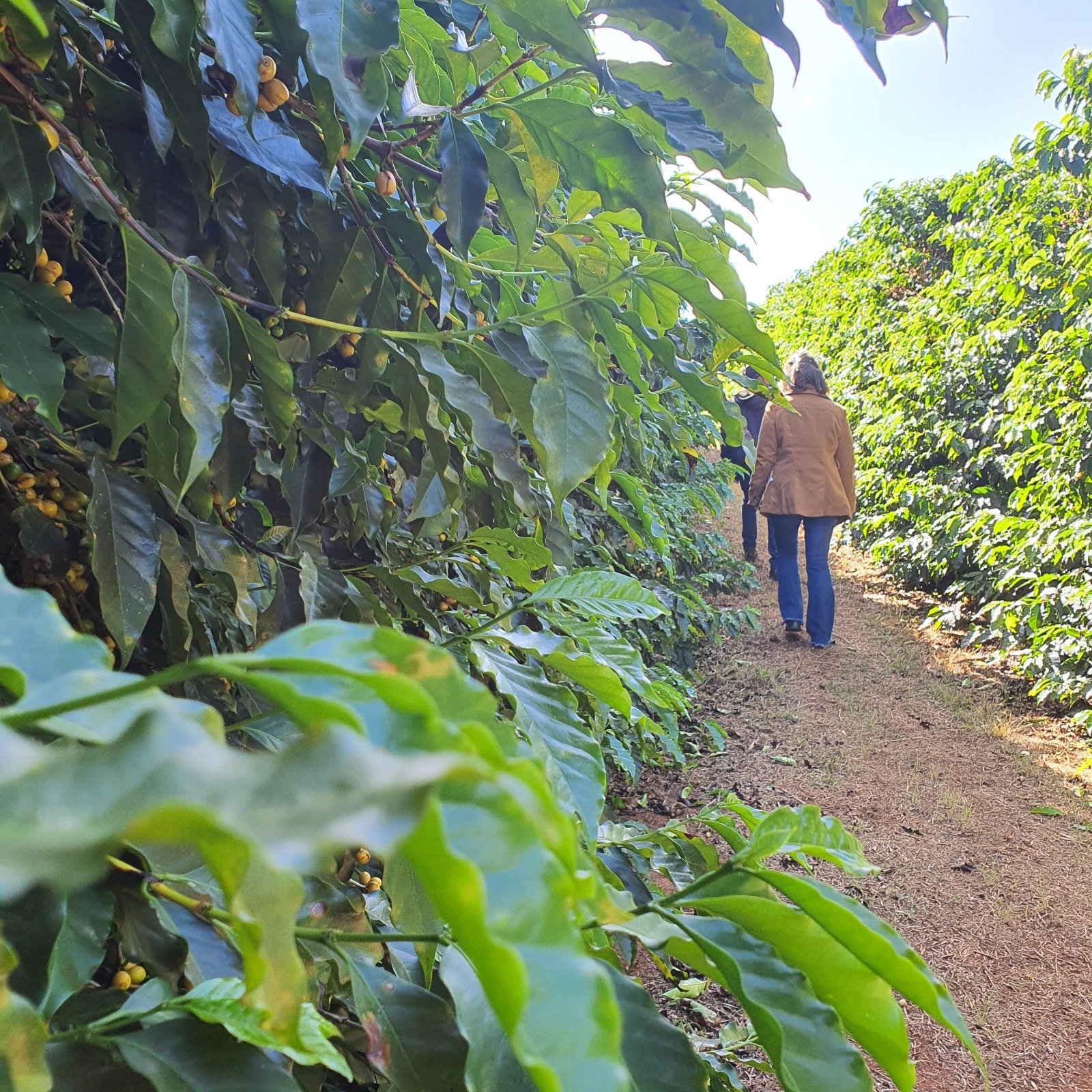
As they unfurl into full blossom, a slow yet mesmerising transformation unfolds over the ensuing eight months. From the initial bloom, we witness the emergence of a node, followed by the pinhead stage, bean expansion, and eventually, the ripening. The image below captures the beans as they near the pinnacle of ripeness, a visual testament to the meticulous care and natural splendour encapsulated in every bean.
Marina and her diligent team embark on the harvest only when at least 80% of the cherries reach mature fruition, thereby ensuring the coffee beans are of a superior quality. This 80% threshold is meticulously determined by hand, with staff members delicately taking samples from the crop. Below, you'll find a photograph captured by Marina, featuring Jessica (quality Control) and Niltinho (the farm manager) immersed in the task of sampling and counting the cherries. Their focused attention to detail exemplifies the unwavering commitment to quality that defines every cup of coffee we are privileged to offer.
Below is a sample tray the staff use to check that the cherries are at the correct level of mature fruits in order to continue with the harvest.
At Fazenda Paradiso Café, a blend of modernity and care governs the harvesting process. Mechanical harvesting methods are employed, not merely for the sake of efficiency, but also to mitigate stress to the delicate coffee plants, ensuring their robustness for seasons to come. Among the varietals that grace Marina's farm, the Bourbon variety is notably the early bird, reaching ripeness ahead of the rest, and thus, heralding the onset of the harvesting season. Its timely readiness for picking sets the stage for the meticulous journey from the sun kissed fields to the aromatic roastery.
Following the meticulous picking, the cherries are laid out on expansive patios, spread into a thin layer to commence their post-harvest journey. Under the watchful eyes of Marina and her team, these cherries receive diligent care, being regularly rotated, shielded or exposed to the elements based on the prevailing weather conditions. Concurrently, a keen monitoring of a short fermentation process is underway. The adept hands of the team deftly adjust the turning of the cherries, ensuring a precise balance in the natural fermentation process to avoid any over or under fermentation. This careful orchestration is pivotal in preserving the inherent flavours and quality of the coffee.
During the drying phase, the coffee cherries embark on a journey of transformation, gradually shedding and losing moisture. They are meticulously measured until they attain a moisture content of only 13%. Once this natural dryness milestone is reached, the cherries are collected up and tranferred into mechanical rotating dryers.
Here, they are gently spun, further reducing their moisture content to a precise 11%. This meticulous care ensures the preservation of the cherries’ aromatic compounds. Upon reaching this desired moisture level, they are set aside to rest in barrels for a period of 30 days. This brief rest period allows the dried cherries to settle before they are introduced to the ‘cleaning’ stage, a careful step towards removing the external cherry and chaff from the coffee bean itself.
The quest for the purity doesn’t end here. The coffee undergoes a second round of cleaning, bidding goodbye to any lingering husks and chaff.
Following this, a further separation ensues, orchestrated by a ‘classifier’.
This ingenious machine harbours an array of vibrating mesh trays, each with holes of varying sizes - larger at the top, gradually diminishing in size as the beans fall downward. As the beans dance upon the trays, their size dictates their journey; while some remain at the top, too large to go through a precise diameter hole, others descend through the holes to the tray below, and so on, eventually finding their place in the hierarchy of bean sizes. This meticulous process ensures that only beans of similar size are grouped together, paving the way for consistent bean size and, more importantly for us, a consistent roasting experience.
Each batch of coffee from the separated trays is then meticulously spread out on a densimetric table. This is a really important stage of coffee bean sorting and has a big effect on the quality of the final product.
A densimetric table is a mechanical aid to separate beans based on their density through a blend of air fluidisation and vibration. Denser beans of higher quality migrate to one end, while the lighter, lesser quality and often labelled as ‘defect’ beans, move to the other. This mechanical, eco-friendly method ensures only the best beans are selected for export. Defect beans, a term encompassing a range of undesirable traits, can significantly mar the resulting quality of coffee. They may arise from various circumstances such as environmental conditions, improper processing, insect damage or “quaker beans” (typically lighter in colour due to a lack of sugars in the unroasted bean from improper growth).
Enough sciency stuff, back to the meticulous process at Fazenda Paradiso Café. The vigilant eyes of Marina's team scrutinize every bean, ensuring those with defects are diligently removed. This step is paramount in preserving the integrity of the coffee, again ensuring that only the finest beans, free from defects, are destined for export. Through this rigorous process, the promise of a rich, unblemished coffee experience is upheld, reflecting the unwavering commitment to quality that is the hallmark of Marina's operation.
Once navigated through the discerning lens of the densimetric table and the staffs watchful eyes, the beans are moved into a colour sorting machine. This machine, with a digital camera, powerful computer and a precision jet of pressurised air, meticulously scans and monitors every bean, identifies and removes any that deviate from the desired colour—colour being another clear indicator of a defect bean.
As each bean is scrutinized and the defected ones are culled, what remains is a congregation of beans that have triumphed over stringent quality checks, ready to embark on their voyage to the exporter and to us. Soon, they will be en route, encapsulated in bags that cradle the fruits of intense labour and unwavering dedication.
And that’s it, that;s the process of what steps the coffee goes through, even before we roast it. A 2 month journey awaits until we get our excited mits on it, but we're thrilled to be able to offer you a special insight into the heart of this meticulous process. Below is a lovely video message from Jessica, manager of Quality Control, with a gleam of satisfaction and a tender smile, inviting us all to enjoy the end product of an entire years worth of effort.
Hopefully, this post has shed light on the numerous steps coffee takes before it reaches your cup, and why each new coffee release really excites us. It's more than just a business venture; it’s a celebration of mastery, passion, and dedication from everyone involved. When every individual excels in their role, the final product doesn't just speak; it sings! Our collaboration with Marina and ‘Fazenda Paradiso Café’ is a source of pride, and supporting them in crafting exceptional coffee is truly rewarding. The positive feedback from our customers is the cherry (excuse the pun!) on top. Coffee is not a one-man show; it's a community effort. And not just in its creation, in its consumption too. Each cup of coffee tells a story of this shared journey from ‘crop to cup’. So, as you savour your next cup, remember the communal narrative and mastery encapsulated in every sip.

